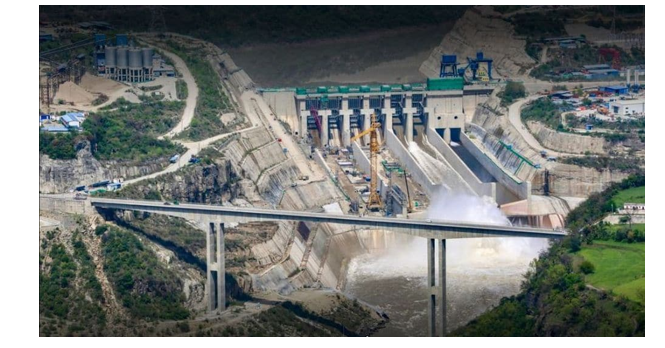INP-WealthPk
Ayesha Saba

Chinese energy companies have demonstrated unwavering support for Pakistan’s green initiatives, and this commitment has been evident through substantial investments in the country’s renewable energy sector in recent years, particularly in hydropower projects. Wang Huihua, Managing Director of China Energy Engineering Corporation (CEEC), recently announced plans to significantly increase investments in hydropower, renewable energy and transmission line projects in Pakistan. He stated that the company was presently involved in projects valued at over $13 billion throughout Pakistan. In the energy sector specifically, CEEC is managing 6,000MW out of the total 8,000MW of ongoing projects. Their extensive portfolio includes major initiatives such as the Dasu, Bhasha, Balakot and Mohmand hydropower projects. Dr M Muzammil Zia, Regional Connectivity & Infrastructure Specialist, CPEC Secretariat, Ministry of Planning, Development and Special Initiatives, said that due to Pakistan's substantial import bill, predominantly associated with oil and related products, it was imperative to capitalise on opportunities in low-cost energy production, green energy initiatives, and climate finance.
“Hydroelectric power is not only more sustainable but also helpful in stabilising energy prices, which have been highly volatile due to global oil market fluctuations,” he told WealthPK. “In Pakistan, numerous hydroelectric projects have been undertaken as integral components of the nation's green energy endeavours. Therefore, it is high time for the government to prioritise the development of all future energy projects based on the principles that ensure both energy production efficiency and environmental safety. Only then can we truly benefit from these endeavours,” Muzammil underscored. “In the second phase of CPEC, it is imperative to critically examine Pakistan's energy policy, which I believe is of crucial significance," he opined. Speaking to WealthPK, Mehmood Khalid, former executive director of CPEC Centre of Excellence and senior research economist at Pakistan Institute of Development Economics, said, “At present, there seems to be a lack of comprehensive planning and coordination in ensuring that energy projects are in harmony with environmental conservation efforts.
The government needs to undertake a thorough review of its future procurements and projects in the pipeline.” He added that by incorporating advanced technologies and best practices that prioritise sustainability and environmental protection, Pakistan can effectively mitigate the adverse effects of energy production on its environment. “Moreover, the government should explore opportunities to enhance more collaboration with international partners, including China, to access cutting-edge technologies and expertise in green energy development. This approach would not only enable Pakistan to meet its energy requirements more sustainably but would also position the country as a leader in environmentally responsible energy production on the global stage,” he observed.
Credit: INP-WealthPk













